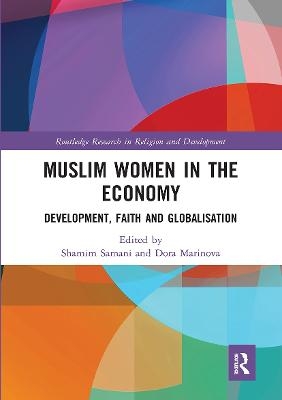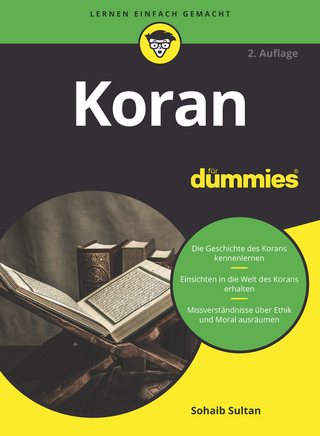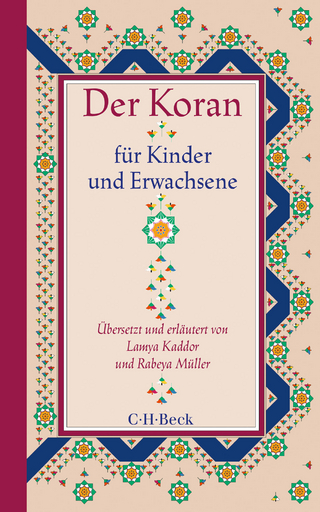
Muslim Women in the Economy
Routledge (Verlag)
978-1-032-23733-6 (ISBN)
This book explores the changing role of Muslim women in the economy in the twenty-first century. Sociological developments such as secular education, female-focused policies, national and global commitments to gender equality as well as contemporary technological advances have all served to shift and redefine the domestic and public roles of Muslim women, leading in many places to increases in workplace participation ¿and entrepreneurship. The volume investigates the contexts of these shifts and the experiences of women balancing faith and other commitments to actively engage in the economy in vastly different countries.
The book looks at how family codes and the understandings of Muslim male and female roles sit alongside social and economic advances and the increases in women partaking in the economy. ¿Within a globalised world, it also highlights the importance of the implementation of the current sustainable development priorities in the context of Muslim societies, including Sustainable Development Goal 5 that focuses on the vital role of women and their full participation in all areas of sustainable development.
With cases ranging from Saudi Arabia, Iran, Bangladesh, ¿Pakistan, Indonesia, Nigeria, Kenya through to Spain, Bulgaria¿ and Australia, Muslim Women in the Economy will be of considerable interest to those studying, researching and interested in gender, development and religious studies.
Shamim Samani is a research fellow at the University of Western Australia and a lecturer at Curtin University, Australia. Dora Marinova is a professor of Sustainability at the Curtin University Sustainability Policy (CUSP) Institute, Australia.
Introduction Part 1 Gender Policies and Economic Participation 1. Progressing in a Man’s World: Women’s Workforce Participation in Bangladesh 2. Gender Parity through the Saudi Vision 2030: Female Representation in English as a Foreign Language Textbooks 3. Cultural Assimilation Policies in Bulgaria and the Plight of Muslim Women 4. ‘Leaving No One Behind’: Analysing Contexts of Education and Economic Challenges for Muslim Women in Northern Nigeria 5. What Hides Behind the Scarf: Iranian Women’s Participation in the Economy Part 2 Negotiating the Workplace 6. Narratives of Empowerment: Female Domestic Workers in Karachi 7. Mediating between the Secular and the Religious: Strategies of Prominent Spanish Women of Moroccan Muslim Origins 8. Multilayered Workplace Discrimination Faced by Muslim Women in a Western Context 9. Being a Muslim Working Woman: Experiences of Australian Women of Pakistan Origin 10. A Quest for Balance: Analyzing Layers of Consciousness Beneath a Muslim Woman’s Career Decisions Part 3 Opportunities in the Global Economy 11. Islamic Finance and Women-Focused Banking in Kenya 12. The Influence of Religion on the Empowerment and Economic Mobility of Smallholder Women Dairy Farmers in Nigeria 13. Education, Digital Enterprise and Islam in the Indonesian Modern Embedded Economy Conclusion Muslim Women in the Economy: Looking Towards the Future
| Erscheinungsdatum | 14.12.2021 |
|---|---|
| Reihe/Serie | Routledge Research in Religion and Development |
| Zusatzinfo | 21 Illustrations, black and white |
| Verlagsort | London |
| Sprache | englisch |
| Maße | 156 x 234 mm |
| Gewicht | 362 g |
| Themenwelt | Geisteswissenschaften ► Religion / Theologie ► Islam |
| Sozialwissenschaften ► Soziologie ► Spezielle Soziologien | |
| Wirtschaft ► Volkswirtschaftslehre | |
| ISBN-10 | 1-032-23733-3 / 1032237333 |
| ISBN-13 | 978-1-032-23733-6 / 9781032237336 |
| Zustand | Neuware |
| Haben Sie eine Frage zum Produkt? |
aus dem Bereich


